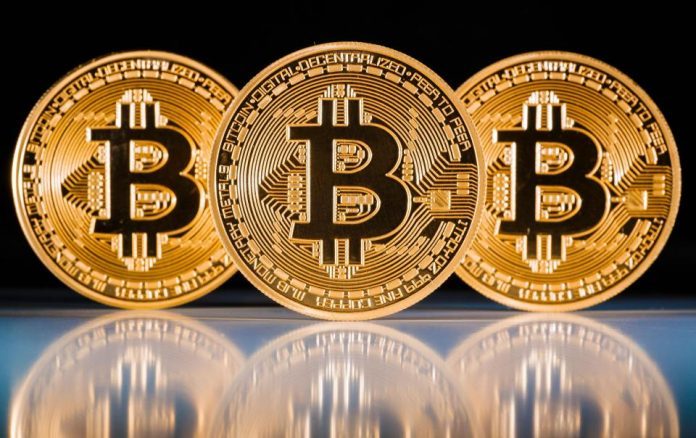LONDON: Recently, the global asset markets have been roiled by concerns that the United States and China may soon enter a trade war.
While some assets have responded in a predictable fashion – with stocks losing value and gold enjoying gains – Bitcoin has failed to appreciate over the last few days.
The world’s largest digital currency by market value fell to as little as $8,296.33 today, down more than 9 per cent from the weekly high of $9,159.90 it reached on Wednesday, March 21, CoinDesk Bitcoin Price Index (BPI) figures show.
This situation contrasts with the times that Bitcoin prices surged in response to geopolitical or macroeconomic turmoil.
The simplest answer to this query me be this: while Bitcoin has acted as a safe haven at some points, it isn’t functioning that way now.
This situation may largely be the result of Bitcoin not having the same liquidity as gold, another safe haven asset, said Mati Greenspan, senior market analyst for social trading platform eToro.
“Traditional assets like gold have a lot more liquidity Bridges and gateways that facilitate flows to and from stocks, bonds, and ETFs,” he noted.
“Bitcoin doesn’t have that framework in place just yet,” which makes it more difficult for investors to take money out of stocks, for example, and put them in to the digital currency.
Bitcoin is notoriously volatile, and this characteristic can detract from its appeal as a safe haven, noted cryptocurrency fund manager Jacob Eliosoff.
“Bitcoin obviously remains tremendously volatile: both in random day-to-day (or hour-to-hour) swings, and in its own internal dramas and crises,” noted Eliosoff. “So it’s certainly not a reliable safe haven.”
He emphasized the sharp price gains that crypto experienced in 2017, noting that such strong upside made a pullback a “strong possibility.”
Because of this strong volatility, Bitcoin is still a risk asset, said Charles Hayter, co-founder and CEO of digital currency data platform CryptoCompare.
The cryptocurrency may function as a safe-haven at some points, but it still carries significant risk, he stated.
One reason that Bitcoin is failing to function as a safe-haven asset recently may very well be that its investor base has been undergoing significant change.
In the beginning, specific groups of people such as technologists and Libertarians flocked to Bitcoin due to its decentralized nature.
However, interest in digital currencies has surged, causing their total market value to skyrocket over the last few years.
“The base of Bitcoin has changed, in fact it has evolved, to a wider base of investors,” said Charles Thorngren, CEO of Noble Alternative Investments.
“People who have only invested in equities are now looking for options as the rumblings in the stock and bond market increase,” he stated.
Thorngren lauded these developments as a positive, stating that:
“This new investor helps to establish a stronger Bitcoin market and adds legitimacy to the cryptocurrencies as a whole.”
























